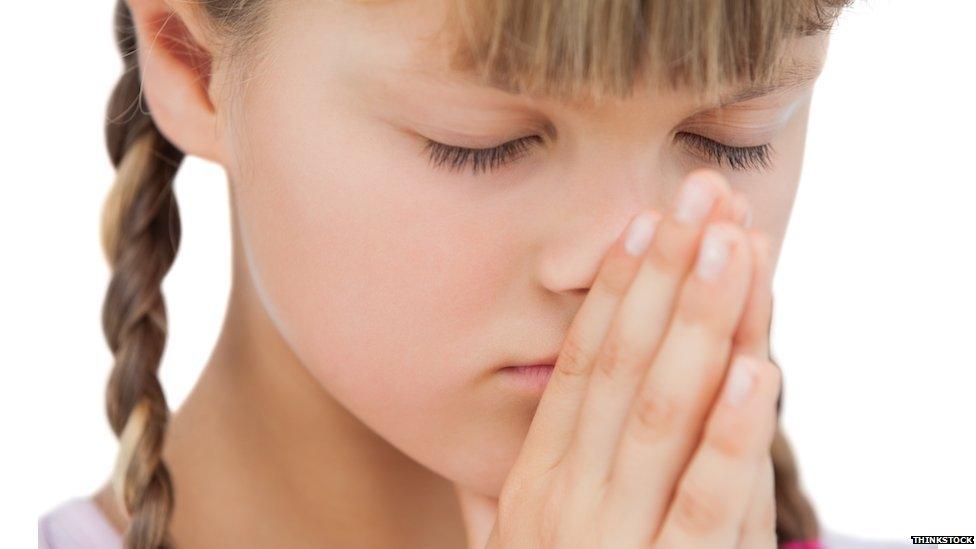Schools' religious assemblies 'should be scrapped'
- Published

The report focuses on non-religious state schools
The duty of British schools to arrange daily acts of collective worship should be scrapped, a report says.
The study, for the Arts and Humanities Research Council says such acts, which must be Christian in nature, could discriminate against other religions.
It adds there is no clear rationale for the duty, and that parents are often unaware they can withdraw their children from religious assemblies.
The government said collective worship has an important role in schools.
Schools in England, Wales, and Northern Ireland are required to provide daily acts of collective worship and religious observance is required in Scotland.
If the school is a faith school, these acts must be in line with the specific religion.
Minority groups
And in non-religious schools, the acts need to be broadly Christian in character without favouring any particular Christian denomination.
But the report by the University of Leicester urges ministers to re-think the duty.
Based on the contributions of 10 scholars in the UK, it focuses its recommendations on schools that are not religious in nature.
The statutory duty to provide an act of collective worship/religious observance in schools was introduced in 1945 and has been controversial for decades.
Issues include:
disagreement about the appropriateness of such acts in an increasingly multicultural UK
the degree to which the current system properly affords respect for the rights of individuals and minority group, including those with no faith
concerns that the present arrangements do not adequately develop the spiritual/moral education of pupils, or promote community spirit
The report also highlights how in 2004, the Chief Inspector of Schools for England drew Parliament's attention to the fact that 76% of secondary schools were breaking the law by failing to provide daily acts of worship.
Schools and education authorities should make it clear that parents can withdraw their children from the acts, it recommends.
And it suggests all schools should make public the content of acts of worship so parents can make informed choices.
Schools need to provide alternative activities where opt-outs have been requested, it adds.
The Department for Education said the daily act of collective worship encourages children to reflect on belief, and helps shape fundamental British values of tolerance, respect and understanding for others.
Other faiths
"It is for schools to tailor their provision to suit the needs of their pupils, and parents can withdraw their children from all or any part of collective worship," a spokesman added.
He pointed out that some maintained schools and academies serve communities where the majority of pupils are of a faith other than Christian.
In this situation, a maintained school can ask the local Standing Advisory Council on Religious Education (Sacre) to lift the requirement for Christian worship and replace it with worship based on a non-Christian religion, as appropriate.
Rabbi Dr Jonathan Romain, chairman of the Accord Coalition which campaigns to end religious selection in schools, said: "The study is only the latest to identify major problems with how the current legal arrangements around school assemblies are working.
"Not only do they fail to properly respect staff, parents and pupils' autonomy and rights but, because many find the current rules unworkable, a culture has been created where a great many schools rarely provide assemblies, if at all.
"If we are to rescue the opportunity for pupils to communally explore and forge shared values, in a way that is workable and respectful, then the government must show leadership and repeal the collective worship laws as a matter of urgency."
- Published6 September 2011
- Published28 January 2014